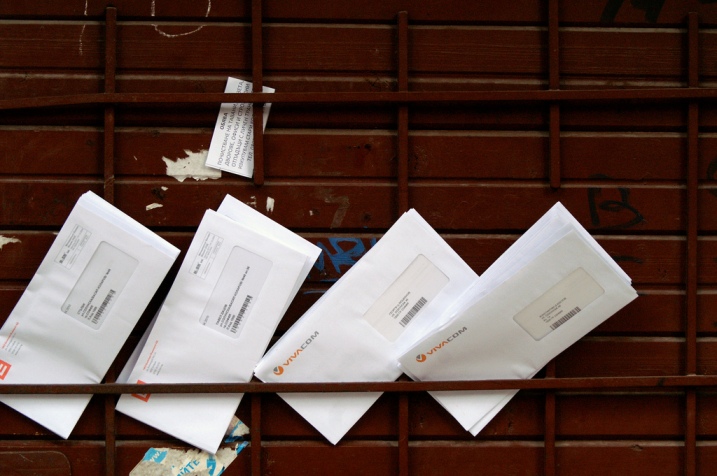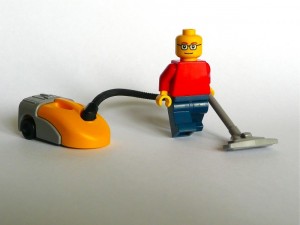Landlords have two primary concerns when it comes to tenants. First of all, they want to always be sure that a tenant is going to get his or her rent and utility payments in on time. No landlord wants to bother a tenant incessantly about an overdue rent check or chase down a former resident who leaves the property with outstanding debts. Secondly, landlords want to be sure that a tenant will respect their property, follow all rules and policies, and generally keep the place in good condition. Re-painting, re-carpeting, and otherwise repairing a house or apartment is not only a costly proposition, but can be a time-consuming inconvenience as well.
In short, a landlord sees the perfect tenant as someone who pays their bills on time and treats the property they are renting like it is their own. Because these are the two main qualities landlords are looking for, they are also the facets that most landlords will focus on while interviewing and screening tenants. However, there is more to finding this so-called “perfect tenant” than simply asking them if they will pay rent in a timely fashion and take care of the property. After all, tenants can lie in an interview or on an application to present themselves as the perfect tenants even when they are far from it.
With these things in mind, all landlords should make a point of putting their prospective tenants through a meticulous and comprehensive screening process. From detailed tenant applications to criminal background checks and from in-depth in-person interviews to talks with employers or previous landlords, a landlord who truly wants to find a perfect tenant should be willing to go the whole nine yards. Need more convincing? If you are thinking about renting out an apartment, a house, or some other property that belongs to you, the seven reasons below should give you cause to check your prospective tenants fully before handing over a key and entering into a lease.
1. It will help you to learn whether or not your tenant may be dangerous: One thing that a landlord absolutely shouldn’t have to deal with is a tenant that presents a threat to their safety or to the safety of other tenants. Most landlords run a criminal background check on their prospective tenant for precisely this reason. A tenant with a violent history – or a tenant featured on a registered sex offender registry – can present a liability risk that isn’t worth taking. When you run a background check on a prospective tenant, be discerning. Don’t simply disqualify anyone with a criminal record from consideration. Instead, consider giving a tenant a shot if his or her discretions are minor or happened a long time ago. When it comes to more serious crimes, use your gut: if you’d feel uncomfortable dealing with a person on a day-to-day basis, then don’t rent your property to them.
2. It provides a picture of their financial history: In addition to a criminal background check, be sure to run a credit check of your prospective tenants. If you want to find a tenant who pays rent on time and won’t try to run out on bill, then you can learn a lot of the information you are looking for from a credit check. Heaps of credit card debt and unpaid loans or a record full of late payments serve as a pretty solid indicator of a tenant who won’t be able to keep up on rent payments.
3. It will help you find out about legal battles the tenant has been involved in: Your tenant background check should include a civil search that turns up his or her court history. While you might consider giving a prospective tenant the benefit of the doubt in the case of a bad credit rating – especially for a younger renter who is still paying off college debts or something like that. However, court history can give you a pretty black and white portrait of a tenant who isn’t financially reliable. An applicant who has been sued in the past over unpaid bills – be they child support payments, rent bills, or other contractual payments – isn’t someone you are going to want to deal with as a landlord.
4. It helps you learn of past evictions: Some background checks will even reveal recent instances of eviction on a prospective tenant’s record. While there are certainly cases where there is more to the story than you are seeing, an eviction is generally a major red flag. Landlords don’t evict over nothing: on the contrary, evictions are usually preceded by a series of stern warnings, both written and verbal. A tenant who has been evicted, therefore, is usually someone who is unreliable, difficult to work with, and potentially dishonest.
5. You will hear stories from past landlords: Background check and credit check reports can tell you a lot about a tenant, but eventually, you are going to want to do some digging of your own. Reference checks are a good place to start. Ask your tenant for contact information for a previous landlord, then call that person up to hear about your tenant’s past rental history. In all likelihood, you’ll get a glowing recommendation from a landlord who was always paid on time and never had any trouble. But sometimes, you’ll hear horror stories from landlords who were cheated out of money or had their property damaged or destroyed by the tenant in question. Generally, if you want to hear about how good or bad someone is as a tenant, just ask their previous landlord.
6. You will learn about the employer’s professional reputation: Continuing on with the reference checks, try to have a brief talk with your prospective tenant’s current employer before renting your property. The employer can be a nice fallback option if the tenant has no previous landlords – especially common among young people – and will be able to give you an idea of who your tenant is as a professional. Someone who shows up to the office on time, gets all of his or her work done, and treats bosses and co-workers with kindness and respect is someone who will also probably interact with their landlord in a professional and respectful fashion.
7. You will hear your tenant’s plans for the future: Lastly, try to figure out what your tenant is thinking for the future, both short term and long term. You can find out a lot about your tenant outside of the interview, whether through reference checks or background checks. However, one thing you will have to ask about firsthand is what your tenant’s goals and plans are for the future. Since the process of finding a new tenant can be a long and exhausting one, landlords want a tenant who is going to be sticking around for a while.
The views, opinions and positions expressed within these guest posts are those of the author alone and do not represent those of Pendo Rent.
About the guest author:
Michael Klazema has been developing products for pre-employment screening and improving online customer experiences in the background screening industry since 2009. He is the lead author and editor for Backgroundchecks.com. He lives in Dallas, TX with his family and enjoys the rich culinary histories of various old and new world countries.
(Photo Courtesy of Flickr user, baksheeh)





